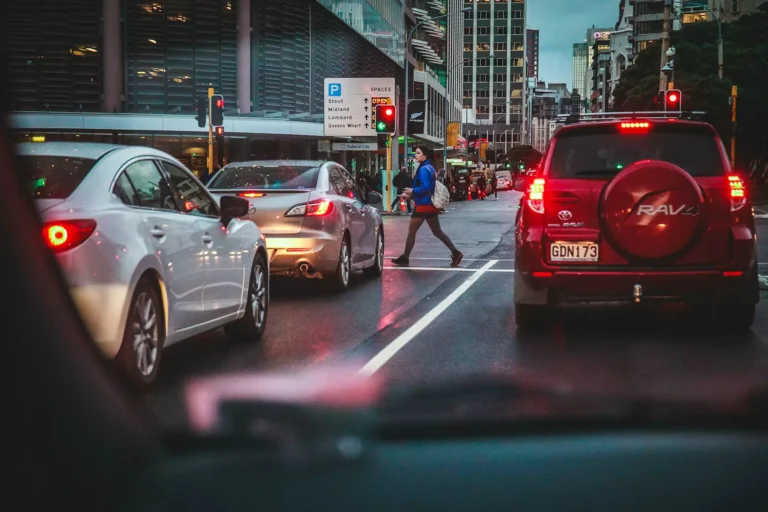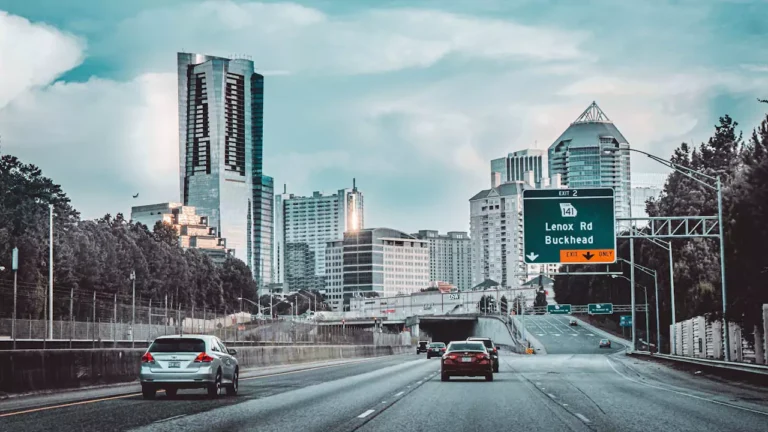If you are involved in an accident, you may hear your attorney or the insurance adjuster use the term “comparative negligence.” But what does it mean, and how will comparative negligence affect your case? Personal injury cases, like motor vehicle accidents, are generally complicated and involve many variables.
For this reason, it’s advisable to seek the legal guidance and representation of an experienced car accident attorney. At Fry | Goehring, our legal team is ready to help you understand how comparative negligence may affect your car accident case. Our reputable lawyers will gather and analyze evidence to understand what caused your auto accident and who is to blame.
But first, let’s dive into what a comparative negligence car accident claim is and how negligence may affect your case.
What Is Comparative Negligence, and How Does it Differ From Contributory Negligence?
In personal injury cases, two factors play a critical role in how claims are settled: negligence and causation. Negligence is the primary principle that applies in most personal injury claims across the U.S., governing the ability of plaintiffs to recover damages. States have adopted two doctrines when determining fault in auto accident cases: comparative and contributory negligence.
When determining compensation after an accident, comparative negligence guarantees injured victims compensation for damages if their degree of fault doesn’t exceed a certain threshold. In other words, under the comparative negligence car accident doctrine, injured victims may still recover damages despite being at fault.
On the contrary, the contributory negligence doctrine completely bars victims from seeking compensation in car accidents if they have even the slightest fault. North Carolina, Virginia, and Maryland are some of the states that apply this doctrine when determining fault in car accident cases.
Introduction to Georgia’s Modified Comparative Negligence Law
In no-fault states, injured victims in car wrecks file insurance claims with their own carriers for medical costs, lost wages, pain and suffering, and property damages, regardless of fault.
In contrast, Georgia is an at-fault state that applies comparative negligence car accident laws when determining fault. This implies that the at-fault party’s insurance policy covers the victim’s damages. Georgia’s comparative negligence car accident laws allow plaintiffs to recover damages if they are partially at fault, but only if their percentage of fault is less than 50%. Plaintiffs aren’t entitled to damages if they are 50% or more responsible for the accident.
What Are the Key Differences Between Modified and Pure Comparative Negligence?
Two types of comparative negligence rules apply in car accident cases: modified and pure comparative negligence. In both cases, plaintiffs can recover damages after auto accidents. However, the main difference between modified and pure comparative negligence is the percentage of fault that prevents victims from recovering damages.
In a pure comparative fault system, a plaintiff may receive compensation regardless of their percentage of fault. So, if you are 99% at fault for an accident, you may still collect 1% of the damages.
Modified comparative negligence states, on the other hand, apply either the 50% or 51% fault limit when awarding compensation. The 50% rule bars plaintiffs from receiving compensation if their blame is over 50%, while the 51% rule requires plaintiffs to prove they were less than 51% responsible for their injuries and damages to recover damages.
How Does Fault Apply in Comparative Negligence Car Accident Cases?
Fault is a crucial legal concept in states that follow the comparative negligence doctrine. Remember, you must prove that you were less than 50% responsible for an accident to recover damages. To do this, you and your Atlanta car accident lawyer must show the defendant breached their duty of care, which resulted in your injury and damages.
Picture this: if a truck driver is driving under the influence and a passenger car driver is speeding at an intersection, both parties may be at fault if a crash happens. In such a scenario, a police accident report may be crucial when assigning blame for the accident. Other pieces of evidence that may help prove fault include:
- Traffic camera footage
- Dashcam footage
- Witness statements
- Toxicology reports
- Party admissions
- Road signs
- Traffic lights
Determining fault after a car accident in Atlanta isn’t always straightforward, especially if multiple parties are involved. For instance, various parties may be at fault when a multiple-car crash occurs, typically on busy highways such as the I-20, I-75, and I-85. Passengers and pedestrians may also share the blame for car accidents.
Strategies for Maximizing Your Compensation Despite Shared Fault
Once you are involved in an accident and you believe you share some blame, here are some things to do to maximize your compensation:
- Preserve evidence, such as photos and videos of the scene
- Consult a doctor for checkup and treatment
- Keep a record of all accident-related expenses, including invoices and receipts
- Gather the names and contact information of any witnesses
- Don’t sign any documents from insurance representatives or give recorded statements
- Don’t accept the first settlement offer
- Keep an injury journal, noting how you feel mentally and psychologically
- Stay off social media
- Don’t forget to file your lawsuit within Georgia’s 2-year window
Securing compensation for damages isn’t easy, particularly if you share some blame for the accident. Even if some evidence doesn’t point in your favor, an Atlanta car accident attorney can help you maximize your compensation by gathering evidence to build a compelling case that proves your fault is less than 50%. Since Georgia is a comparative negligence car accident state, you can still recover compensation despite shared fault.
What Is the Role of Insurance Companies in Assigning Fault?
After accidents, insurance companies in Georgia apply comparative negligence car accident laws to help them do the math. Typically, they’d want to know who or what caused the accident and how much it may cost them.
Once you notify your insurer about the accident, insurance adjusters start investigating your case. They look into details, like whether you were texting while driving or if you ran a red light. Such details help adjusters figure out who is at fault. They will also sieve through evidence from the scene, look into the police report, evaluate physical vehicle damage, and probe your auto insurance policy before contacting you.
Keep in mind that your insurance policy isn’t just a piece of paper. This document can literally steer the direction of your personal injury claim after an accident.
Tips for Negotiating a Settlement With the Other Party’s Insurance
After an accident, you may receive a call from the other party’s insurer. They may ask you questions about the accident or seem to care about what happened to you. In truth, they are looking for reasons to reduce their liability. This is why you should always be prepared for settlement talks, which, in turn, thwarts the insurance company from shaping the negotiations and dictating terms.
Here are some of the top tips during negotiations:
- Never admit fault
- Stick to the facts
- Find out the rough value of your claim, including your future accident-related expenses
- Don’t accept the first offer
- Get a copy of every correspondence from the insurance company
- Emphasize emotional points, such as pointing out how the accident has affected your ability to care for your son
- Get your settlement in writing
- Hire an experienced car accident lawyer for representation
When to Consider Involving a Personal Injury Lawyer
No law requires plaintiffs to hire personal injury attorneys in Georgia when filing car accident claims. Still, having an attorney by your side levels the playing field during settlement talks and gives you an upper hand during litigation. It’s crucial to hire a car accident lawyer near Atlanta as soon as possible, if not immediately after the accident. You can reach out to Fry | Goehring if you are involved in an auto wreck for legal guidance and representation.
Here are some instances when you should consider hiring a car accident attorney:
- When you and other passengers suffer catastrophic injuries
- When the accident leads to wrongful death
- When there are multiple parties involved in the crash
- When you are involved in a hit-and-run accident
- When the other party’s insurance company denies liability
- When the insurance company delays your checks
- When you are not sure who is at fault
Insurance companies will always go the extra mile to limit payouts to accident victims. This is why it is advisable to enlist the services of our top-rated personal injury lawyers to:
- Investigate your case and determine fault
- Answer your questions
- Protect you against unfair allegations of fault
- Interview witnesses to build a compelling case
- Negotiate with the insurance company on your behalf
- Hire experts to testify
- Take your case to trial
An experienced lawyer is your best bet at receiving maximum compensation for your medical bills, lost wages, and other damages.
Injured in a Car Crash? Call Us to Learn About Georgia’s Comparative Negligence Car Accident Claims
The laws surrounding comparative negligence in Georgia are complex. Keep in mind that insurance companies and judges consider many variables when establishing negligence and determining the percentage of fault. They thoroughly scrutinize all details of the case, weighing all pieces of evidence before reaching a conclusion.
In personal injury cases, evidence matters. An experienced lawyer can gather and analyze evidence, proving the defendant was at fault and financially liable for your injuries and damages. This could mean the difference between collecting a settlement for 100% of your damages or recovering nothing at all.
Fry | Goehring can help you at every stage of the car accident claims process. For a free consultation, call us today at 404-969-1284 or fill out our online contact form to get started. We are ready to discuss your legal options and how comparative negligence may affect your case.





